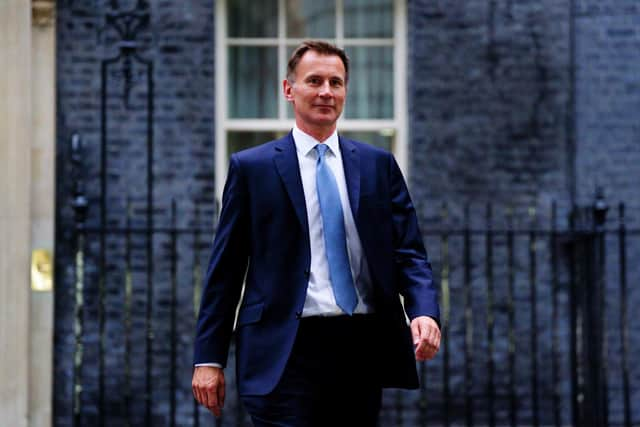Scotland on Sunday opinion: Jeremy Hunt’s new job is a symptom of chaos, not a cure
Hunt's measured tones, heard on the media rounds yesterday morning, signalled the Truss administration's newly-acquired interest in conventional economics. Mistakes had been made, lessons learned. "Difficult decisions" would be required as taxes rose, and spending across key areas fell.
But the message he carried, soberly and carefully, was a screeching about-turn for the Truss administration: a complete policy reversal, in which Corporation tax will go up after all, and the sort of painful choices about public spending – dismissed as even a possibility by the Prime Minister on Wednesday – will instead be a reality.
Advertisement
Hide AdAdvertisement
Hide AdReaders with much of a memory will, of course, spot the ironies. Hunt's campaign to replace Boris Johnson – only this summer, although many political eons ago – had, at its heart, deep tax cuts. He would not have merely delayed a Corporation tax rise, like Truss. He wanted to cut it even further.


Another irony: Hunt's rebirth as the leading adult in this shambles of a government. His dismal performance in 2015 and 2016, as Health Secretary, led to him being ranked as Britain's "most disliked" frontline politician after he attempted to impose a new contract on English junior doctors. This crown of unpopularity was no mean feat in those days: his rivals included David Cameron, George Osborne and Jeremy Corbyn.
Maybe, like the Prime Minister, Hunt is not too bothered by popularity. Cynics may say this is just as well. Others, however, may worry: political popularity amounts to permission to act, and is an indicator that a large body of the electorate accepts your policies are the right ones.
What is the mandate for this increasingly bewildered administration? Truss's elevation to Prime Minister came courtesy of a tiny sliver of the electorate: a majority of Conservative Party members. If, as is suggested in these pages and elsewhere today, Hunt is now the de facto Prime Minister, what is his plan – and who voted for it? Can he carry not only his party, but the nation, through the difficult winter and "tough choices" ahead?
None of this is a parlour game, despite the chuckling grandees filling our airwaves this weekend. Families will face dire choices, forced by the rampaging costs of living and soaring interest rates. We need more than one adult in charge: we need an entire government of them, and it has never appeared more clear that the Conservatives, worn out by rancour and time in office, are now incapable of supplying them.
Were they to have an ounce of care for the country they preside over, they would call an election now. That this seems entirely unlikely, despite the chaos that surrounds this government, is its own indictment.